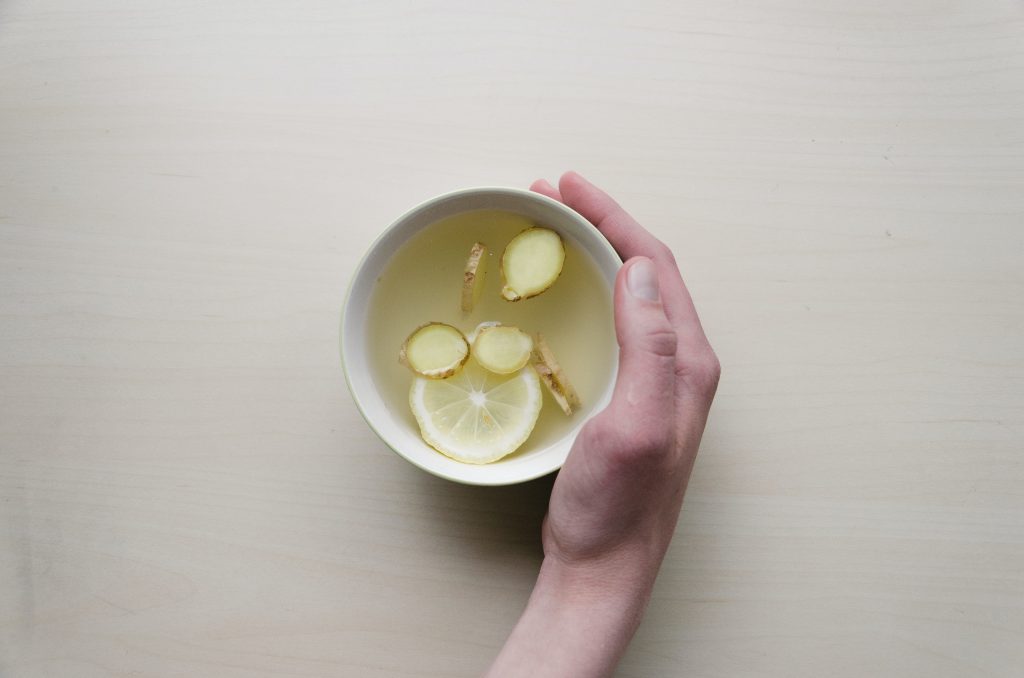I’d take a large bet on guessing that you intend on living a life of fulfillment, satisfaction, and success in all aspects of your life. Most of us do. Whatever the word ‘success’ means to you in your life, the key is creating a wholesomely healthy internal and external environment- which means staying on top of your overall wellbeing, physically, mentally and spiritually.
But sometimes, knowing what aspects of life to focus on can be difficult, maybe even a little overwhelming. (Click here for our free guide for better mental health toolbox for men).
Not only is life complex with its many facets… so are we, being multidimensional creatures and all. Catering to ‘all of ourselves’ (our physical, mental, emotional, and spiritual selves) is vital for living a fulfilling and satisfying life.
Many ancient cultural and spiritual beliefs have understood for a long time that these dimensions of self are all interconnected in the way they form our entire human experience.
Our unique perception of reality is all sculpted from these aspects of our lives:
How we think and feel, what we believe, and what we give our energy to are simply what we experience in our lifetime. Which puts you in control of your own destiny. What a relief, right?
Bear in mind though that these different aspects of our life often have different intentions or desires.
For example, your career goals may mean everything to your physical and mental self, while your emotional or spiritual intentions may be steering you in another direction or yearning for something else.
But allowing yourself to only be satisfied in one or some areas of your life is the epitome of unbalanced health.
Let’s dive into the four areas of health for men, starting with the most tangible – physical health – leading to the least intangible, spiritual.
The Four Areas of Healthy Living for Men
Physical Health:

When thinking of your physical health you may instinctively consider your consumption habits, exercise habits (or lack thereof), maybe even the amount of sleep you allow yourself. These are all significant concerns, yet physical health goes beyond your biological functioning. Biological health also includes genetic influences, brain chemistry, hormone levels, nutrition, and gender; and don’t forget energy.
Prana, otherwise known as ‘life force,’ is an ancient eastern philosophical concept that describes the unseen universal energy that pulses through the body along a network of internal body channels. Similar to your central nervous system, these channels act as a conduit for our energy (prana).
The conduits we’re referring to in this article are your prime seven chakras.
The word chakra translates to wheel in Sanskrit, which refers to loops of energy that flow throughout the body. They are invisible wheels of energy that keep us vibrant, healthy, and aligned.
Each chakra is intertwined with a vital organ within our body, starting from the base of the spine to the crown of the head. They correspond to tremendous nerve systems, as well as our psychological, emotional, and spiritual states of being.
Keeping our physical body healthy means having regard for every and all aspects of yourself.
Your energy matters.
Mental Health:

To take our mental health into consideration, it’s helpful to extend our understanding beyond the surface of our thoughts and go deeper. Introspectively, our beliefs, values, desires and goals are the currency of our energy.
According to neuroscientist Dr. Joe Dispenza, connecting the dots of the outer physical world and our inner mental worlds should be greatly considered. The quantum energy that flows within and around us is an extremely important component of our mental health, which subsequently impacts our physical health.
In the same way that energy is transferred from one entity to another (such as radiation or conduction), energy flows from our human bodies and transfers into our outer world. In science, this is called cause & effect, but in our human experience it is often called laws of attraction.
The philosophy of laws of attraction in its simplest form means that we attract positivity with positive thoughts and negativity with negative thoughts.
Your thoughts matter.
Emotional Health:

Emotions can be quite intimidating but are a necessary aspect of our overall health.
Our past, present, and future emotional experiences are generated as feelings throughout our body (within our chakras) which then store in our memory and eventually can form our belief system for life.
Experience of emotions (such as anger, resentment, hurt, guilt, or shame) can be used to identify how to (or how not to) handle certain situations and events in our lives. For example, if we’ve been hurt or felt shame in a certain situation in our past, we might develop the belief that the same feeling is disproportionately likely to result in similar situations in the future.
Alas, this means that our life decisions are being made, altered, and affected by these filters of subconscious beliefs, invariably formed with insufficient data, yet nonetheless steering, and directing our life by the experience of past emotions, often unknowingly!
Despite the fact that we cannot change the past, our present and future self rely heavily on our personal experience of our emotions to guide our everyday lives.
How you feel about yourself leads to how you think of yourself. How you think of yourself leads to how you treat yourself.
Your emotions matter!
Spiritual Health:

Spirituality can mean different things to men of different cultural and religious backgrounds.
Whatever your ideology, your spiritual self is the driving force to your being and your connection to infinite energy, the source of all that is, our Universe.
Tending to your spiritual health means allowing energy and information to flow across the different dimensions of our self.
Fundamentally, your connection to your spirit will allow you to become more mindful of your physical, mental, and emotional health, which should establish greater harmony within.
When you’re spiritually healthy you’ll be inclined to become more present and intuitive, as opposed to relying on your subconscious beliefs and ideas.
Each moment is brand new, generating endless possibilities; and your spiritual self has the capability to flow with this truth.
Consequently, being physically, mentally, and emotionally unhealthy will create blockages within the natural flow. This can lead you to live life through these blockages which could lead to feeling dissatisfied/unhappy, repeating negative outcomes, making regretful decisions, or simply not living up to your full potential.
And who wants any of that?
5 tips to help men nourish their physical, mental, emotional, social and spiritual well-being
Exercise & Physical Health: Keep Moving!
Being physically fit is about more than appearance and vanity.
Our body is our first home, so treating it with respect and care reflects how we value ourself and our energy, as well as exercising our discipline and priorities.
Here are a few simple tips to utilise your body more to stay physically healthy:
- Get some fresh air (more often)
Even throughout pandemic lockdowns in most places it was possible to leave the house for at least a short walk.
So whether it’s a stroll around the block, or a full-scale hike, not only will you be giving your body necessary exercise and stimuli, but getting good ole fresh air also strengthens your immune & digestive systems and can improve blood pressure and heart rate.
- Adopt at least a 10-minute-a-day workout routine
Too many people put off exercise because they believe they don’t have the time. But 10 minutes of activity can be all you need to start experiencing the many benefits of exercise on your body, mind, attitude, and mood. And most of us easily waste far more than 10 minutes faffing around on our mobile phones.
So swap the phone for a jog, some star jumps, or sit-ups. Or use that phone to look up a yoga routine, or follow this (10 minute morning workout video).
With consistency, you’ll begin to recognise your progress across several dimensions of your health and wellbeing.
- Practice isometrics
If stretching and yoga could have a baby, they’d name it isometrics. This physical activity helps build muscle, strength, balance, and reduces stress. Check out this guide to isometric training for awesome power video.
Sleep your way to wellbeing

Body and mind rejuvenation is essential for a healthy life.
Lack of sleep is an extremely common cause of bad internal and external health. Sleep allows our body to recover from stressors, both physically & emotionally, and improves our immune system, memory, mood, and daily mindset.
If you find yourself often skimping on necessary sleep to prioritise other concerns, consider that you can actually increase your efficiency when nourished with a healthy amount of sleep (at least seven hours a night). So you might feel like it’s a good idea to work late into the night to finish a piece of work – but is it really worth it if your performance will be hampered by tiredness for the next day or two?
Here are a few simple tips for healthy sleep habits:
- Set a consistent sleep schedule
Go to bed at the same time and wake up at the same time every day. Even at weekends. Train your mind into craving this routine until it becomes a lifestyle.
- Use your bedroom for sleep ONLY
Besides sleep (and maybe a little intimacy) your bedroom should immediately make you think of relaxing sleep when you enter it – not your second office or gaming zone. Eliminating unnecessary stimuli in the bedroom will clear your mind and the energy of the space.
Ahhh, just imagine yourself waking up just as peacefully as when you went to sleep….every single day!
- Avoid Alcohol
No judgment here! It’s just a scientifically-proven fact that alcohol is a sedative that slows down brain activity.
I know, I know…alcohol typically induces sleep, doesn’t it? That’s true, but it can also interfere with your natural sleep; causing you to wake up frequently, oversleep, experience nightmares, or wake up feeling low in energy (as the body is using that energy to revitalise itself, temporarily leaving the mind behind).
Don’t forget about nutrition

Men’s bodies are generally high in muscle mass, stature, and basal metabolic rate. This means a balanced, high caloric, high (healthy) fat, high protein diet should be seriously considered.
But let’s not use the term ‘dieting’ here. There’s a stigma surrounding dieting which insinuates that it’s a passing fad or a temporary mission with an end goal – usually tied to weight, or a six-pack or something. Because of this perception, dieting often ends with a return to pre-dieting habits once the goal has been hit, or motivation lost.
Instead, consider your diet to be the new standard for your body, a consistent commitment you’re willing to make permanently as an investment in your health and vitality, and should consist mostly of foods that will aid in your betterment.
Here are three top 3 foods we recommend incorporating into your daily diet:
Avocados—are high in healthy fat (60% monosaturated fat) which research suggests helps to protect against heart disease and lowers blood pressure. Consider replacing your banana with an avocado as avos contain more potassium and are loaded with fibre.
Almonds—are an easy and quick way to pack your diet with tons of healthy fats, fibre, protein, and vitamin E, which supports immune function and prevents heart disease.
Spinach—is a superfood that packs innumerable nutritional benefits. Trailblazer Popeye knew that it provides a very healthy amount of roughage which will improve your digestion, as well as aiding in detoxification. Try adding a cup of spinach to your favourite smoothie or using it to replace lettuce in a salad.
(Of course, a well-rounded diet should also consist of sugars and wholegrains).
Visit eatright.org for more in-depth guidance for those wanting to learn about diet.
Mental Health Hygiene
Mental hygiene is extremely important, but is easily overlooked by most of us.
Life moves at such a fast pace that it’s easy to get swept up and carried along in the day-to-day. But making time to pause, reflect, and process what we are experiencing is an important wellbeing factor, as well as giving us perspective and more agency to inform the decisions we take on a daily basis.
We know it’s not always easy to find the time to do so, but committing to one less thing on your todo list to allow time for one of the following is likely to feel like a far better use of the time for your mental wellbeing.
Consider these strategic tools for mental hygiene:
- Writing in a daily journal, or practicing ‘morning pages’ to let out your inner thoughts, express emotions, and set goals and plans to achieve them.
Make The full focus planner your new best friend, it’s more than a journal its a lifestyle that’ll keep yourself organized in all the tiers of life.
- Listening to mindful/conscious podcasts can help fill your mind with what and who you want to be) The Science of Happiness by Greatergood Mag will keep your introspective mind running with constructive and optimistic topics. Or check out the Practicing Human podcast hosted by psychologist and meditation teacher Cory Muscara.
- Attend therapy to talk through your situations with an unbiased expert: Acknowledge the fact that you are only human, and that accepting help is strength
- Practice daily meditation to gain awareness of your thought patterns, allowing you to better reflect, focus and stay present. Check out this innovative and modern method of meditation by Muse Headbands that’ll keep you mindfully progressive.
Complete Detoxification: Out with the old, in with the new
When thinking of detoxification, what comes to mind? Healthy foods? Tea? Juice cleanses? Those would be correct when considering your physical body, but a physical detox isn’t the only form of detox.

Physical Detox
Physical detoxing is about rebooting your metabolism. By doing a physical detox you minimise the number of toxins within your body, clearing space for healthier nourishment.
Along with a short period of fasting, you’re giving your body room to regenerate from the harm or stress of toxins that we accumulate through exposure to things like chemicals, pollution and bad bacteria in our day-to-day lives. Things that can cause inflammation, sickness and general negative reactions.
Foods such as asparagus, broccoli, blueberries and artichokes are so rich in vitamins and antioxidants that they help the body detoxify itself.
Fasting is willfully refraining from consumption also in a psychological context. Many people fast to develop spiritual strength, including to train resistance against temptation.
When thinking of the combination of words: ‘fasting’ and ‘detox’ we might also consider how to detoxify our mental, emotional, and spiritual selves:
Mental Detox
Clear your mind and find focus. Your mind may be consumed with many day-to-day stressors, anxieties, and distractions. A mental detox can include taking intentional breaks from your electronic devices, breathwork, or setting aside time for self-care (such as taking a warm bath).
Emotional Detox
Reset your mind and body by pulling up repressed negative feelings (sadness, frustration, fear, etc.). This isn’t an overnight process, but practice for purifying undigested or over-processed emotions.
Get in the habit of identifying and labeling your emotions (a little advice, let the emotions flow first and then attach your understanding of these emotions).
Over-processed emotions could be altering your perception of reality. Digging in the past can be uncomfortable but for a successful detox, it’s necessary to learn more about your subconscious mannerisms, actions and judgement.
Spiritual Detox
A conscious cleanse is a way to rejuvenate your inner self. Spend more time on activities and with people who spark happiness and positive emotions, and less time with those who drain your energy. Spiritual retreats are also a great way to clear blockages from the connection to your true self that can often get lost in the stress of daily life.
A look into men’s mental, emotional and spiritual health:
For generations in many cultural backgrounds the view of what a man should be has led societies to assume that a man who considers his emotions or introspective mind is weak or delicate. As if looking within is only for the sensitive.
Resetting these preconceived ideas of what a man should be is our first step to understanding true mental, emotional, and spiritual health for men.
These unhelpful, stigmatic beliefs can give a man an unhealthy view of himself, leading to self-deprecation, low self-esteem, or destructive habits.
The war on emotions
Two World Wars in the last century have left a lasting impact on the minds of today’s society, especially for men.
Preparing for battle means accessing, activating, and deactivating certain parts of ourselves because, in war, there is no room for personal emotions, only resiliency, courage, and valour.
The brave and lucky men who returned home to their families, or to create one, couldn’t help but carry forward their survivalist military mindset into their character. How could something so traumatic and significant be left behind?
Meanwhile, in comparison many of those who did not participate in the war found themselves with masculine inferiority issues to cope with. All the emotions it takes to participate in a brutal, blood-shedding war created an unbalanced environment for men that would be ingrained in their psyches and then psychologically passed down onto their offspring’s consciousness.
Instilling this militant mindset of survival, trauma, desensitisation would eventually distort our view of what a man should or should not be.
As stated by an article on pubmed.gov: “Humans are mapped onto a model of stress, coping, and health. These studies demonstrate causal relations between acute stressors and DNA damage and significant correlations between psychological factors (e.g., depression, coping) which are moderated by gender.”
How men may be physically, emotionally, mentally and spiritually tired
As our generations have evolved in the decades since the World Wars, men have adopted certain post-war habits into standard qualities, whether they are objectively fit for this present, relatively conflict-free world or not.
Men have been continuing to uphold the burdens and pain of war, destruction, and the aftermath of the effects.
As Freud declared in his 1914 work The History of Psychoanalytic Movement:
“We may say, in other words, that from the historical point of view psychoanalysis did not undertake an investigation of the ego before the First World War”.
Eventually, psychological health has graciously been integrated into a recognised holistic standard of health, allowing us to understand that what was once deemed to be a necessary set of behaviours, to get us through a particularly extreme period in human history, is now a formula for an unhealthy and unbalanced lifestyle.
This understanding helps advance the modern man from the mechanical into a more conscious aspect.
How are male physical, mental and spiritual health related to stress?
The standard male ego is equipped with intentional principles that deprive them of certain things, such as catering to their emotional needs or being inclined to tune into their feminine qualities.
Balance isn’t only about connecting all of your selves, but also the balance of masculine & feminine energies is just as important.
The yin-yang of life is a natural balance of masculine and feminine characteristics and qualities. Without equilibrium, the mindset of the male ego remains primitive.
A quote from the Freud/Jung Letters of 1913 states it loud and clear:
“The forces which, operating from the ego, bring about the restriction and repression of instinct owe their existence essentially to compliance with the demands of civilization”
The masculine energy is the power which helps create control, order, structure and is associated with the mind; causing the male ego to be occupied by linear logic, competitiveness, determination, and rationality.
Feminine energy has a direct connection with the heart; causing the feminine ego to be occupied by qualities such as empathy, compassion and reception, which is energy that thrives in chaos.
When considering the collective consciousness as a whole, duality becomes critically important. Without balance of feminine and masculine energies, this can lead to mental or emotional fatigue.
Subconsciously restricting yourself of necessary perspectives and emotions will inevitably cause unwanted and unidentified stress.
Daily practices for spiritual, mental, emotional and physical wellbeing

Keep yourself organised
Become the Manager and CEO of your own life. Set goals and a path towards them. Create a schedule and set your intentions for each week. Compartmentalise and accommodate each dimension of yourself by doing at least one thing for each aspect (physical, mental, emotional, and spiritual) each day.
Don’t overcommit and set yourself up for failure. Start small, and stretch yourself over time as you get a feel for what you can realistically accomplish.
Meditation
Exercise your mind daily. If you’re a beginner, try pre-recorded, guided exercises to ease you into it. Reduce your daily stress and control your anxieties as you enhance your self-awareness.
Communication
Express your feelings with words, rather than simply experiencing them. This will help you understand yourself better, which will then lead to you making more intentional decisions, as opposed to unconsciously giving into your emotions and reacting from them.
Take a Mental Health Day (or several!)
The days of enduring stress and pushing yourself to the limit should be over. Needing a mental break from time-to-time is normal and necessary in our busy modern world.
Knowing when to take a break, and having the discipline to do so, is critical to maintaining your overall health and wellbeing. This could be a break from work, or even socially.
Spend your mental health day doing things that make you feel good. Focus completely on yourself, nothing mundane, your personal time is valuable.
And finally, never forget that, or undervalue, the critical importance of investing time and resources in your all-round health and wellbeing.




